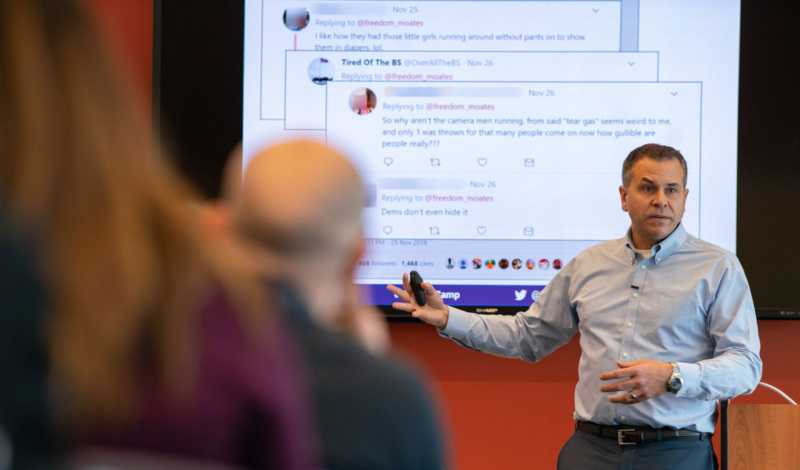
NLP’s Adams looks at migration in the context of news literacy
Messages and images that appear online, in print and on television strongly influence how people think about issues such as migration, according to Peter Adams, NLP’s senior vice president of education.
“People see different things in the way stories are reported, or in photos that are used to represent a situation or person,” Adams told Adam Strom of UCLA’s Re-imagining Migration project, noting that the way a group of migrants is identified in the media — as “an army” or as “a pilgrimage,” for example — can affect a reader’s or viewer’s perception. “If a piece of information causes you to have a strong emotional reaction, you need to be careful — because when our emotions are high, they can override our rational minds and cause us to miss key details.”